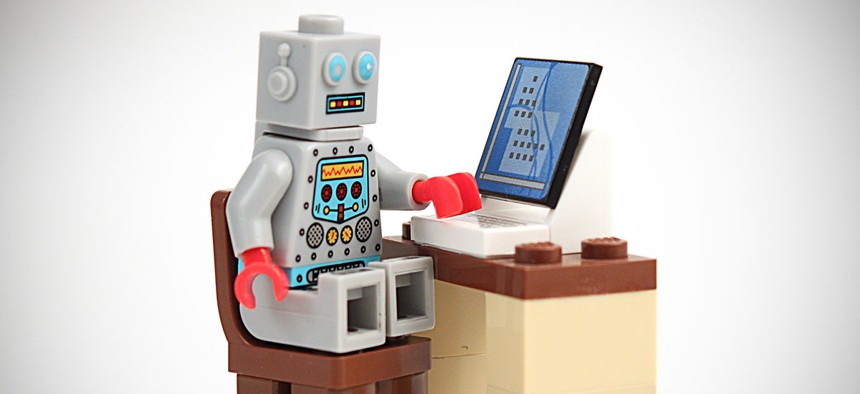
cjmacer/Shutterstock.com
Algorithms Make Better Hiring Decisions Than Humans
Hiring against a machine’s recommendations only leads to worse hires, according to a NBER study.
Managers might like to believe that they have better hiring judgment than a computer, but a recent working paper (paywall) from the National Bureau of Economic Research suggests otherwise.
The researchers looked at the employment record of 300,000 low-skill service sector workers across 15 companies. The jobs had low retention rates, with the average worker lasting just 99 days, but researchers found that employees stayed in the job 15% longer when an algorithm was used to judge their employability.
An online test evaluated roughly one third (94,000) of the employees, who were asked questions about their technical skills, personality, cognitive skills, and fit for the job. Based on the results, an algorithm rated each applicant green (for high potential), yellow (for medium potential), or red (for low potential).
On average, the employees who were evaluated by a machine stayed in the job 15% longer than those who were hired without being rated by an algorithm.
The researchers also looked at cases where managers were allowed to use their discretion and go against the algorithmic judgements to hire a different worker. These decisions led to poor results, they found, noting that the “exercise of discretion is strongly correlated with worse outcomes.”
Those rated green stayed on average 12 days (11%) more than those rated yellow, who in turn lasted in the job 17 days (18%) longer than those rated red.
The researchers also looked to see if those hired by human managers against the algorithm’s recommendation had higher productivity to counter their short tenure, but found that this was not the case. Hiring against the machine’s recommendations went completely against better outcomes, the authors said.
It may be that the algorithm is particularly well-suited to filling low-skill jobs, where tenure and productivity are two clear measures of a successful hire; higher-skill positions might demand other measures of success. But given that humans tend to hire employees they’d like to hang out with (pdf), rather than those who are best for the job, it could make sense to make an algorithm head of recruitment.
(Image via cjmacer/Shutterstock.com)






